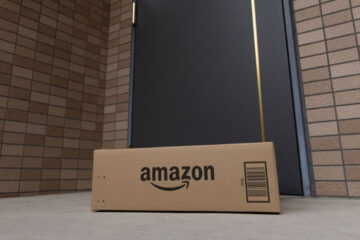Mark Cuban, a billionaire investor famous for co-hosing “Shark Tank,” is doubling down on his sharp criticism of President Donald Trump’s tariffs.
Tariffs are taxes companies pay to import goods from overseas, and the extra cost often impacts consumers via price increases.
💵💰Don’t miss the move: Subscribe to TheStreet’s free daily newsletter 💰💵
Over the past few months, Trump has been determined to enforce tariffs on other countries in an effort to promote manufacturing in the U.S.
Related: Mark Cuban sounds alarm on how consumers should handle tariffs
“The higher the tariff, the more likely it is that the company will come into the United States and build a factory,” said Trump in an interview with Bloomberg News in October.
On April 9, Trump raised his 34% tariffs on China to 125%. He also paused reciprocal tariffs on all other countries for 90 days, dropping them to a universal rate of 10%, after announcing higher tariff rates on over 60 countries a few days earlier.
Mark Cuban doubles down on tariff issues
Over the past few weeks, Cuban has made it clear on several occasions that he isn’t a fan of Trump’s tariffs.
On April 3, Cuban posted on social media platform X that Trump’s tariffs “completely ignore” entrepreneurs.
Billionaire Mark Cuban is seen speaking to an audience.
Image source: Dallas Mavericks
“The unrecognized failure of the Trump tariffs approach is that he is depending on big global companies to create manufacturing jobs here,” wrote Cuban. “He has completely ignored entrepreneurs and innovators.”
Cuban later advised consumers in a post on social media platform Bluesky that they should start panic-buying goods to prepare for price hikes Trump’s tariffs may cause.
“It’s not a bad idea to go to the local Walmart or big box retailer and buy lots of consumables now,” said Cuban. “From toothpaste to soap, anything you can find storage space for, buy before they have to replenish inventory. Even if it’s made in the USA, they will jack up the price and blame it on tariffs.”
Related: Jamie Dimon sounds alarm on recession concerns
Now, in a recent tweet, Cuban is calling those who support Trump’s tariffs but don’t solely buy American goods a “hypocrite.”
“I don’t care who you are,” wrote Cuban. “If you are complaining we need tariffs to bring manufacturing and jobs to the USA, and you don’t buy American EXCLUSIVELY, YOU ARE A HYPOCRITE. You want to bring manufacturing back, lead by example and get friends and family to do the same.”
Consumers are already planning to change their shopping habits
Many consumers across the country are already contemplating buying American-made products in response to Trump’s tariffs.
According to a recent survey from plastic fabrication company DuraPlas, 79% of Americans say that if they see prices on foreign goods increase due to tariffs, they may put more priority on purchasing goods made in America.
Also, 23% said that if tariffs stay in place or increase, they will permanently shift toward buying more American-made products.
More Tariffs:
Mark Cuban sounds alarm on how consumers should handle tariffsTarget makes controversial move to dodge high tariff costs Walmart doubles down on harsh tactic to shrink threat of tariffs
“People are watching, and many are willing to reconsider where their money goes if the cost of imports rises too much,” said DuraPlas President Paul Phillips in a recent press release. “For American manufacturers, this is a moment to reinforce the value of domestic products — not just as an alternative, but as the best option based on quality, reliability, and long-term savings.”
While more people rethink their shopping habits, JPMorgan Chase CEO Jamie Dimon recently warned in his annual letter to shareholders that Trump’s tariffs could also increase the price of domestic goods.
“As for the short-term, we are likely to see inflationary outcomes, not only on imported goods but on domestic prices, as input costs rise and demand increases on domestic products,” said Dimon when addressing Trump’s tariffs. “How this plays out on different products will partially depend on their substitutability and price elasticity.”
Related: Veteran fund manager unveils eye-popping S&P 500 forecast


